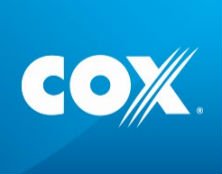Ads on Pirate Sites Can Hurt Sales, Survey Finds
mercredi 14 août 2019 à 21:13
In recent years, various copyright holder groups embraced a “follow-the-money” approach in the hope of cutting off funding to so-called pirate sites.
Major copyright holder groups such as the RIAA and MPAA see this as an effective strategy. Their ultimate goal is to drain these infringing sites of their revenue.
Several voluntary initiatives have been set up to facilitate this process. This includes the Trustworthy Accountability Group (TAG), an anti-piracy certification program operated by giants including Amazon, Google, Facebook, Disney and Warner.
TAG’s goal is to get as many advertisers and advertising networks on board as possible, to effectively prevent ads from showing up on ‘dubious’ websites. This isn’t just so these companies can have a clear conscience. A new survey, conducted by TAG and Brand Safety Institute (BSI), suggests that it’s a wise business decision as well.
The survey in question polled 1,017 adults in the United States. These respondents were asked whether they believe that advertisers should prevent their ads from showing up on dubious sites. In addition, the survey asked whether they would buy less if they saw a brand’s ads on these sites.
The results of the survey, perhaps unsurprisingly, show that many people would like advertisers to prevent their ads from appearing on ‘dangerous’ sites. Hate speech, porn, and hacked sites were seen as most troublesome, and pirate sites follow at a distance, with 53% of the respondents urging advertisers to take action for this category.

When asked whether people would actually buy less should they encounter ads on such sites, the results are clear as well. Here, a new category of “terrorist training videos” tops the list, with 90% of the respondents stating that they would buy less. For piracy sites, this goes down to 82%.

While it’s clear that advertising on the wrong sites can lead to reputational damage and potentially fewer sales, it’s worth taking a closer look at the full survey results to provide some nuance.
When asked whether people would buy less after seeing ads on pirate sites, 18% actually said that they would buy the same amount. It wouldn’t be a surprise if this includes pretty much all the people who actually use these sites, and then some.
Conversely, the vast majority, if not all of the remaining 82% might never visit any pirate sites to begin with, so they won’t see the ads anyway.
However, Mike Zaneis, CEO of TAG and co-founder of BSI, stresses that their survey shows the danger of advertising on inappropriate sites. “This survey drives home the real and measurable risk to a company’s bottom line from a preventable brand safety crisis,” he says.
“While reputational harm can be hard to measure, consumers said that they plan to vote with their wallets if brands fail to take the necessary steps to protect their supply chain from risks such as hate speech, malware, and piracy.”
For TAG the results of the survey are a great promotional message. The organization would like to see more companies come aboard as members, which in increase its cash flow.
Becoming a certified TAG member is not cheap. The basic membership package starts at $10,000 and this can go up to 65,000 if an advertiser is accepted for the ‘Thought Leadership’ package. Advertising agencies and ‘ad tech’ companies can also join, with TAG requiring some to pay even more.
While several major brands are willing to pay these amounts in order to be on the safe side, not all are. Aside from the cost issue, some brands and ad agencies are actually not interested in banning ads on pirate sites.
As we pointed out in the past, there are also plenty of advertising outfits that still love to work with pirate sites. In fact, there are many advertisers and ad agencies that specifically target them.
DMCAForce is such a company. The CEO, Mark Bauman, previously explained that his company seeks solutions to keep both copyright holders and website operators happy.
Bauman said that his advertising company prefers not to ban or block any sites. It doesn’t want to reward piracy either but sees cooperation between site operators and copyright holders as a win-win.
At the end of the day, pirate site visitors are also consumers. While TAG’s survey is probably right that advertising on such sites will be frowned upon by the general public, one has to question whether the users of these sites share the same opinion.
In that regard, it’s worth noting that participants in the TAG survey couldn’t indicate that they would buy more after seeing ads on pirate sites. That may have provided some valuable extra insight.
Source: TF, for the latest info on copyright, file-sharing, torrent sites and more. We also have VPN reviews, discounts, offers and coupons.




